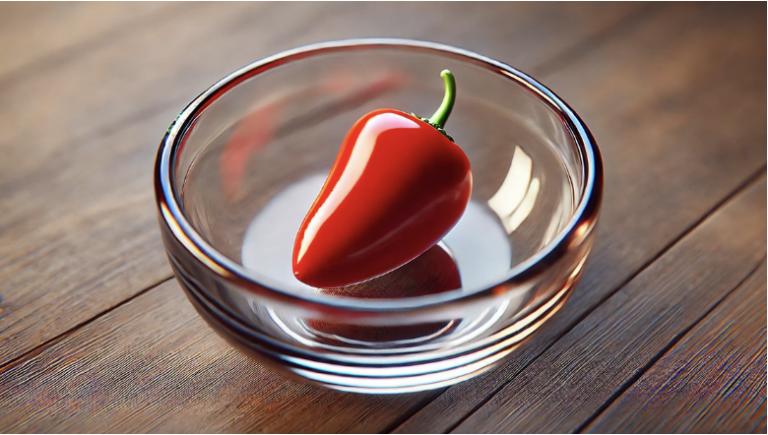
The Fascinating History of Chilis in Latin America
09 September, 2024Lo and behold, the little chili pepper. These perennial shrubs from the capsicum family of foods were relatively unknown to the majority of the world’s population for eons. If it had not been for the legendary Christopher Columbus, the taste sensation of the chili pepper may have been buried for an incredibly long time.
Of course, Columbus didn’t discover the chili pepper – this unique shrub has humble origins in Latin America, notably Mexico, Brazil, and other countries. Indeed, a study conducted in 2016 confirms that 69% of capsicum strains of all types originated in a stretch of land along the Andes (West/North West South America). Naturally, capsicum refers to the berry-like, red, round fruits.
We see evidence aplenty of ancient Mesoamerican use of chili peppers. Microscopic starch grains have been found on milling stones and other cookware in regions of southwest Ecuador for 6,000 years. Chili peppers are used across Central and South America, including Costa Rica, Mexico, and beyond, as a preferred food among locals, even in the pre-Hispanic era.
Archaeological evidence in Mesoamerica suggests that chili peppers may have been used as far back as 400 BCE. Of course, there are many reasons why chili peppers are so widely enjoyed, notably the taste, flavors, and sensory reaction associated with them. Capsaicin is the compound that causes the chili pepper burn. This is also the active ingredient in the food.
Why are chili peppers so popular in our cultural zeitgeist?
Chili-themed movies pepper the entertainment arena. Animated cartoons where characters are consuming chilies are instantly depicted with smoke coming out of their ears, bloodshot eyes, and fiery breath. Chilies are more commonly a sub-theme in movies with candid camera scenarios. We’ve all seen the extreme reactions of cartoon tough guys trying to keep a straight face while consuming ghost peppers. These laugh-out-loud on-camera moments are a fitting tribute to the inimitable red hot chili pepper.
Of course, The Red Hot Chilli Peppers rock stars are perhaps the greatest exponent of this fiery hot little shrub. But their hotness is their musical prowess, not their love of ghost peppers. Indeed, it’s the gaming world that places the iconic chili pepper on a great big podium. One of the hottest modern-day social slot games to hit the scene is Chilli Heat slot by Pragmatic Play.
Set in Mexico, the scene of amazing Latin American cultural elements, fans are thrust into a jackpot-rich realm showcasing the extraordinary fanfare of chili peppers. It’s a riot, with golden coin bags and jackpots as far as the eye can see.
Plus, there are mariachi bands, and happy-go-lucky Mexicans with sombreros livening up the action. With little Chihuahua dogs making lots of noise, Chilli Heat slot is a fiesta to remember. The game encapsulates the essence of Latin American fanfare, with song and dance, food and celebration on full display.
This medium-volatility slot pays tribute to the wild entertainment enjoyed across Mesoamerica. And best of all, it’s free to play. No deposits are needed – simply use the in-game currency known as gold coins (GCs) to power up and enjoy the action.
What’s your knowledge of chili peppers?
*Source: Legal Minds
Why do we seek out the pain of consuming chili peppers?
Temperature-sensitive ions named TRPV1 alert the body to the pain associated with consuming chili peppers. While there is no actual fire, the sensory perception of consuming capsaicin tricks the brain into thinking that there is, in fact, a fire – in our mouths.
Truthfully, the reason we eat and seemingly enjoy chili peppers remains an oddity. Generally, foodstuffs that create an unpleasant olfactory sensation tend to be avoided, but this isn’t quite the case with chili peppers. Perhaps we know that there isn’t any real danger associated with consuming the food, but it certainly feels that way.
Other overwhelming sensations we seek out include the loss of control on a rollercoaster plunge, skydiving, abseiling, jumping into frozen lakes and oceans in the dead of winter, the fear and dread in horror movies, and the like.
People often seek thrilling experiences, and with so much entertainment available, it’s always the right time for adrenaline-packed chili-style action.
Follow Sounds and Colours: Facebook / Twitter / Instagram / Mixcloud / Soundcloud / Bandcamp
Subscribe to the Sounds and Colours Newsletter for regular updates, news and competitions bringing the best of Latin American culture direct to your Inbox.

